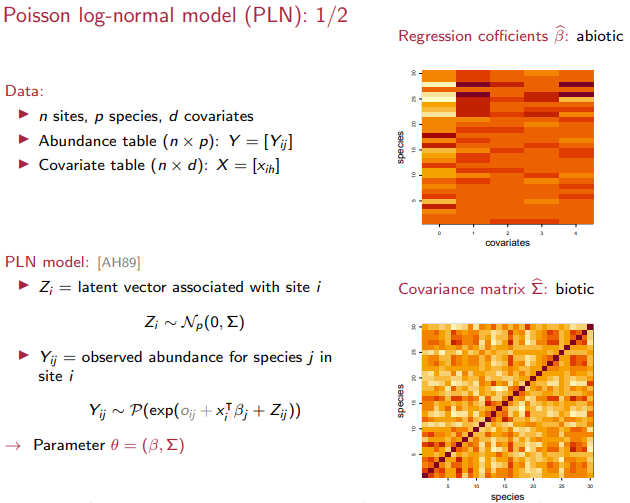- Home
- Worldwide
- CIRAD worldwide
- Projects
- GAMBAS project
Statistical improvements and ecological relevance of joint species distribution models - GAMBAS

GAMBAS Workshop - October 2020 © S. Robin
Issues
Existing statistical models ignore simple mechanisms such as biotic interactions. Yet biodiversity is not just the sum of the species of which it is comprised; it is also the result of their interactions. Filling this gap requires multi-level approaches that encompass different fields of ecology and statistics. GAMBAS will endeavour to address this gap by proposing innovative ecological-statistical approaches to better predict the impact of changes on biodiversity and the ecosystem services it provides.
Description
GAMBAS has three objectives. The first is to conduct a critical assessment and classification of existing models. The second is to develop flexible statistical models that take account of a broad spectrum of known situations. Finally, the third objective is to implement these models in order to define new indexes that are useful in the conservation of natural areas. This goal is shared with policymakers and conservationists.
Expected impacts
- Mathematical tools will be developed by a group comprised of ecologists interested in quantitative aspects and mathematicians geared towards ecology, accompanied by a group of experts (ministerial liaison officers, civil society representatives).
- The use of these tools will be promoted in the fields of community ecology, biogeography and conservation biology.
Contract partners
- Agence nationale de la recherche
























